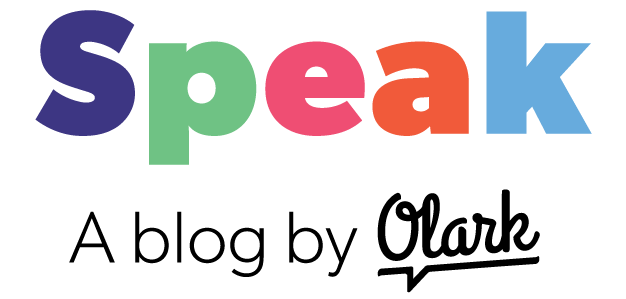A wise philosopher once wondered, "If a conversation happens and no CRM is there to hear it, does it make a sound?"
There comes a point for many small companies when there is more business than a single person or small team can handle. Email response time lengthens, warm leads start to cool, and email inboxes begin to bulge. Lost in the shuffle are important emails from potential partners, media inquiries and, most importantly, questions from customers.
Sounds like a scenario that keeps a small business owner up at night, right? Up all night on a computer trying to archive emails and develop a system to keep things in order.
If this sounds similar to your current situation, or if you feel less organized and increasingly busy, perhaps it’s time to consider a CRM platform. And if you are using a CRM already, are you benefiting as much as you could?
C-R-What?
CRM stands for Customer Relationship Management. It is a tool to effectively track your customer interactions and use that information to make future conversations even more personalized and engaging. This Salesforce infographic nicely sums up the benefits of a CRM: you'll get easier access to contact info, more effective follow-up, improved task management, and tracking of task performance.
Getting your data into a CRM will enable you to scale quicker and more efficiently. In a single place, you can store, search, manage, respond and update all facets of a customer interaction, from sales data, to contact or deal history, to customer service or tech support cases. With your data in one place, it will also make analysis via metrics easier, so you can better understand your site visitors: what they want, what they need, and whether they are getting what they need in a clear, concise manner.
David Arnoux, Co-founder & Growth Hacker at Twoodo, confirms this. "At Twoodo we're extremely data-driven and have a scientific approach to growth. We started tracking our interactions with leads and clients through a spreadsheet, but quickly found that a good CRM tool was indispensable. Today not using it would be madness. It allows us to pinpoint ROI, track profitability, improve our "customer success" strategy, share information and assist us in our scientific approach to sales."
Roman Feygenberg, Sales & Marketing Manager from amoCRM has also seen firsthand the benefits of a CRM for a growing business. In an article for Olark, he wrote, "When a company starts using a centralized database for customer knowledge, they not only begin to make more sales, but they start saving time and money doing it. Having a CRM in place provides a simple solution to an age-old problem of knowledge sharing."
C-R-Who?
Consider a CRM if any of the following situations apply:
- You’re making connections with new sales leads
- You’re answering tech support and customer service queries every day
- You have multiple channels, or recently added a new channel, through which you communicate with customers, i.e. phone, email, live chat, social media, smoke signals
- You have at least one person dedicated to customer support and another to sales/partnerships
- You’re committed to providing the best customer service possible
According to Salesforce, a fully utilized customer relationship management system could increase your productivity by up to 30%. As more customers are placed into the sales process, a clearer picture of your customers will help move them more quickly from sale to full adoption. The additional context from a CRM database can be integrated so that any team member can grab data to see where a customer is in the adoption funnel, and streamline onboarding to provide more help along the way.
As sales increase and business grow, a CRM platform can become the foundation for a system that segments customer conversations for sales or support. Segmenting interactions enables your teams to make the appropriate follow-up and improve the customer experience. Many of our customers choose to create cases for support and leads for sales, and often use a CRM to manage sales leads and helpdesk software to manage support cases.
C-R-Which?
If you've decided you're ready to try a CRM, your next task is to choose a specific platform. There are dozens of options out there, each optimized for a slightly different use case — some platforms cater to smaller businesses, while others will work better for a big company; some are better suited to support a particular type or product, or a certain profile of customer.
Take your time researching the alternatives, and be sure to take advantage of free trial and demo offers, so you can get a feel for various platforms' features and interfaces.
Looking for a place to start? HubSpot, Salesforce, GreenRope, and Highrise are a few of the most popular CRMs available today — and as it happens, all four of those (and more) integrate with Olark.
C-R-M(e)
At the end of the day, it’s up to you whether you need a CRM yet. If you feel satisfied with your method for managing contacts and interactions, than you probably are not at a scale where you need a CRM. If you are finding it hard to handle the volume of conversations and manage follow-ups in your communications channel, it’s time to bring in the CRMs.

